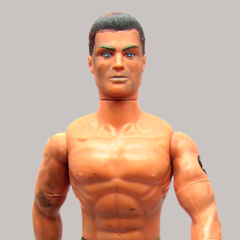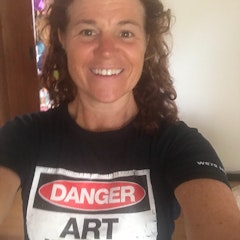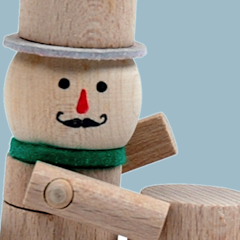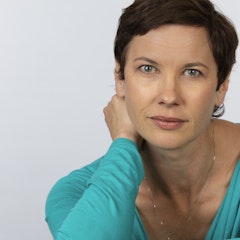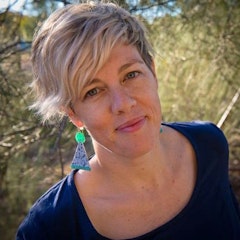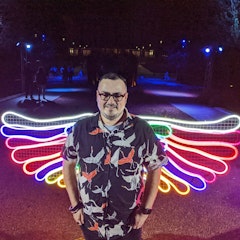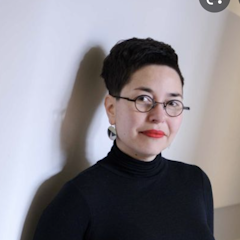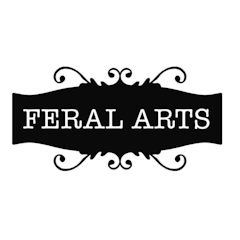Live Stream / Recording
Thursday 11th November, 1:30pm - 3:00pm ACDT
There is an almost unchallenged narrative that the best way to improve understanding of and investment in arts and culture is to promote the sector as contributing to job creation, innovation, and economic growth.
‘Creative industries’ has bundled together the cultural sector – such as performing arts, galleries and museums, music, screen, radio and publishing, design and crafts – with an array of entrepreneurs and tech industries. The sector is divided into those expected to bring commercial returns, and those requiring public funding to stem ‘market-failure’. Misleading growth metrics, return-on-investment arguments, and a focus on ‘jobs’ (with little attention to the actual conditions of cultural labour) have distorted our understanding of the public purpose of culture.
How can we develop a new language for the public value of arts and culture, and take an inclusive, mixed ecology approach to public provision across the whole sector? How do we return culture to its rightful place in public policy, where it might sit beside education, health, research, basic services, and public infrastructure? Can we reimagine a new social license for culture beyond the failing economic rationalism of the last decades?
Andrew P Street (journalist and author) Elaine Chia (arts leader and advocate, Chair, Contemporary Asian Australian Performance) Geoff Strempel (Director, State Library of South Australia) Julia Zemiro (artist and presenter) Julianne Schultz (author and academic, Chair, The Conversation)
In conversation with Justin O’Connor (Reset, University of South Australia)
Questions and Comments
-
I have no misconceptions about the tower I inhabit and it is certainly is not ivory. But I agree re language - we do not need more jargon and weasel words.
-
Thanks for joining our second session. Please note all times mentioned are Adelaide local time (ACDT) which is 2.5 hours ahead of Western Australia, 1 hour ahead of the Northern Territory, 30 minutes ahead of Queensland and 30 minutes behind Tasmania, Victoria and New South Wales. The next session is “I'll Take That As A Comment” starting at 3:30 pm (Adelaide time).
-
My PhD thesis is all about the resilience of cultural stories and communal practices, and I agree with Julia that some knowledge is being lost. Still, we have time to revive Indigenous arts and culture as our blueprint to bring the past to the present.
-
I write from Wurundjeri land :)
-
In fact the Agent of Change principle encoded now in the Victorian planning system is supposed to make such an assessment for music venues.
-
That's a really interesting idea Julianne. We have EISs, Social Impact Statements, Regulatory Impact Statements (economic, basically) -- a CIS could be a serious assessment to argue for, esp wrt development applications.
-
We picked up the (arts) ecosystem from the environment
-
In all honesty, our current system works on profit and is driven by shareholders (big bosses). I agree with what Julianne says and it's a lengthy process to crystalise job opportunities unless the government takes the lead.
-
And the arts can definitely lead - but we have to get out of ivory towers and we don't need new words, we need new action! Put artists on salaries, value outspoken provocateurs, change the power structures so they are not so steeply hierarchical,
-
Greetings from Gundungurra country. Some thgings in the arts need consistency. For example in the 70s and '80 South Australia had a dollar passport for every school child so that they could go to see performing arts for that price. It was one of the ways for the arts be experienced by children which, in combo with the far larger amount of arts now available, could still be useful. No good in running things for a few years and then cutting it off. Needs a full strategy/suite of actions. It should be noted that there is far more arts participation throughout communities than there was 40 years ago. Just think ballet schools, music schools etc.
-
Before the session comes to an end, are there any further comments from anyone on the live chat? What would you like to highlight, or suggest, or question? Do you feel like there is a clear pathway to move beyond ‘jobs and growth’?
-
@pippabailey, I totally agree with you. The reset required is a bigger issue than just the arts.
-
This trouble - that we don't value what matters - is not unique to the arts, every aspect of our lives is pushed through a filter of value and measurement which is deeply influenced by the economic ideologies we swim in. We live under capitalism, we are 40 years in to deep neoliberal thinking. Social value has been deeply undermined & we seem at times bereft of the words and ideas to reinvigorate these conversations beyond their economic value.
-
"visibility" has to be backed up by equitable "access". Being visible isn't enough.
-
...and that the same view on fine arts, when it is displayed on the exhibition for sale not everybody can afford it.
-
I have just spent two years in social services and across health and education - all suffering from very similar challenges. Its a nonsense to think arts are alone. Its because labour costs are expensive in Australia and the arts, edu and social care rely on labour. They can't become more productive or fit within the current economic model. That's what needs to change. With Climate Crisis we have to value people and pay them to do less, not start businesses that need cheap resources to make money - the arts and sport are great solutions for low carbon skills and economic development. UBI, modern monetary theory or other equitable new economic theories are part of the solution.
-
Deanna here, Kaurna Country. We do sometimes have to justify health with economic arguments. We have to justify how mental health is important because it affects how many days people work and what their economic contribution is. So I think the arts can enter a broader debate - how do we change our society's conversation from how do we serve the economy and grow it - to how do we use the economy as a tool to having whole, healthy, art-filled, authentic, fulfilling lives?
-
In Europe they have 5 minutes of arts news in the TV news- its a vital part of of our culture. I have relations who think they are art lovers- they buy paintings of qantas planes, there’s paintings of cats and dogs floating in clouds in the sky, and other things that take their eye when they are on their regular cruises, as well as Star Wars memorabilia and go to Disney on ice. They display this stuff proudly, but they would look at what we are probably talking about as contemporary practice as wierd, confusing and elitist. This is the bridge that needs to be crossed.
-
kinds feels like we have just been through a time where we had to justify the economic benefits of health :P
-
The accessibility question I think is critical...kids grow up with sport all around them...they experience first hand...those kids that experience music or theatre first hand as they grow up will be far more likely to stick with music or theatre as they age.
-
@Julia, I agree with you - as an artist, we work by ourselves to create new artwork ready for exhibition, the process/development/creation and the final product are often done in isolation. Whereas music or theatre works are achieved collectively. So, there's a disconnection with other sectors.
-
Specific sports are subsidized for children to get them in,
-
Certain 'News' outlets call themselves 'entertainment' now don't they?
-
Great, @Julianne. With 'public sector' functionally outsourced to the big consulting firms we're losing the corporate memory to be able to learn from and act on public policy 'missteps' (like aspects of the school infrastructure thing, that you mentioned) so the missteps keep being made, on our dime. The notion of what's 'Public' in 'public good' is vexxed too. We have to reclaim the 'public sector' as genuinely for us too.
-
in the US there was something called the National Theatre Project which was introduced as a response to the Great Depression, which provided work for artists and tradies and actors and writers and generally brought a sense of community. the plays were not quality controlled for absurd metrics such as "excellence" or anything like that, they were simply produced for their inherent value. Tickets were free. this kind of model addresses some of what both Julia and Julie are saying. just to put work out there for free, for audiences to enjoy. Rory, Eora Country
-
We are losing species faster than losing jobs - lets not forget the messages from the first session - we can't go back!
-
Moving beyond and resetting: what are our focus to start with taking into account that the arts and cultural industry are diverse.
-
The bargaining code was never about news...it was just a mechanism to funnel money to the main stream media owners
-
The thing that gets me about the News Bargaining Code that funnels digital ad money from Google and Facebook into news organisations is why we privilege news content more than other types of content such as music, visual arts, writing, video, etc? Imagine if some of that money was paid to content creators broadly.
-
After those introductions, which comments are resonating with you, or challenging your thinking?
-
@Mel Bone-Manser, I agree with you as artists, we also have to change our thinking and collaborate and pass on our knowledge for the future generations of creative thinkers.
-
@Julia. You're totally right about universal access to Australia's young people to experience arts activity viscerally, by doing it themselves, just for the hell (heaven) of it. What kind of dystopian world are we in where that's not the case today?!
-
And we are competing against each other for funding, Jelina. As artists I think we have a far greater capacity for working together because so many of us work in our practices in isolation.
-
@Julia I totally agree, resetting is about the value of arts and culture and the implication of individual well-being and mind growth. The economic impact value of arts and culture is always based on numbers and to balance the financial sheet.
-
Arts health an orgasms = just are a good thing 🤣🤣
-
As a visual art designer, that is always the hard part of accessing grants for the creation/development of new works.
-
Hi everyone, I'm Jelina Haines (she/her) living in Kaurna Country and working alongside the Elders in Ngarrindjeri Country.
-
During the conversations, feel free to comment and discuss what language needs to be used, or conversations had to encourage public value of arts and culture.
-
Hi everyone and thank you Resetters for such a big strong start. Esther here (she/her) on the unceded lands of the Boon Wurrung, Bunurong and Woi Wurrung (Wurundjeri) people of the Kulin Nation
-
I am looking forward to this session. I am a screen studies researcher tuning in from Kaurna Land. Pronouns are he/him
-
Hello - I’m Olivia Parker (she/her) tuning in from Gumbaynggirr Country - where I work as Projects Manager for Arts Mid North Coast !
-
Hi there. I'm Tiffany Lyndall Knight. I'm living and working on Peramangk land. I'm an actor and my pronouns are she/her.
-
Welcome back! For those of you who are joining for the first time, could you please introduce yourself with your name, which Aboriginal country you are in (or overseas location), preferred pronouns, and your organisation or artform practice?
-
We are back live and will be starting soon - If you aren't seeing the live stream click on the 'refresh' button under the video!
-
Thanks for joining the second session of RESET. We'll begin at 1:30pm ACDT.
We would like to acknowledge the Kaurna People as the Traditional Owners of the area known as the Adelaide Plains. We would also like to pay our respects to Elders past and present and emerging.







